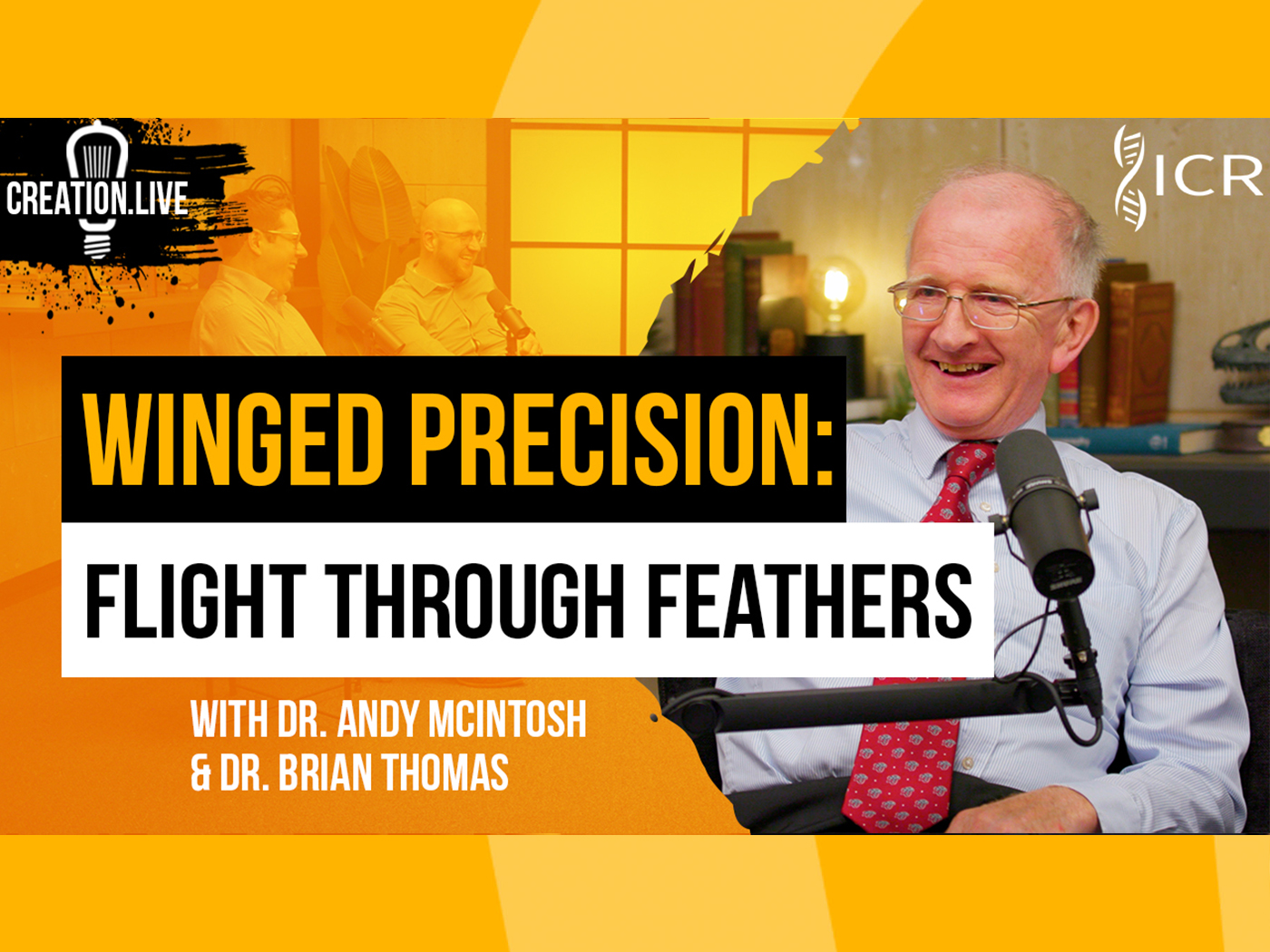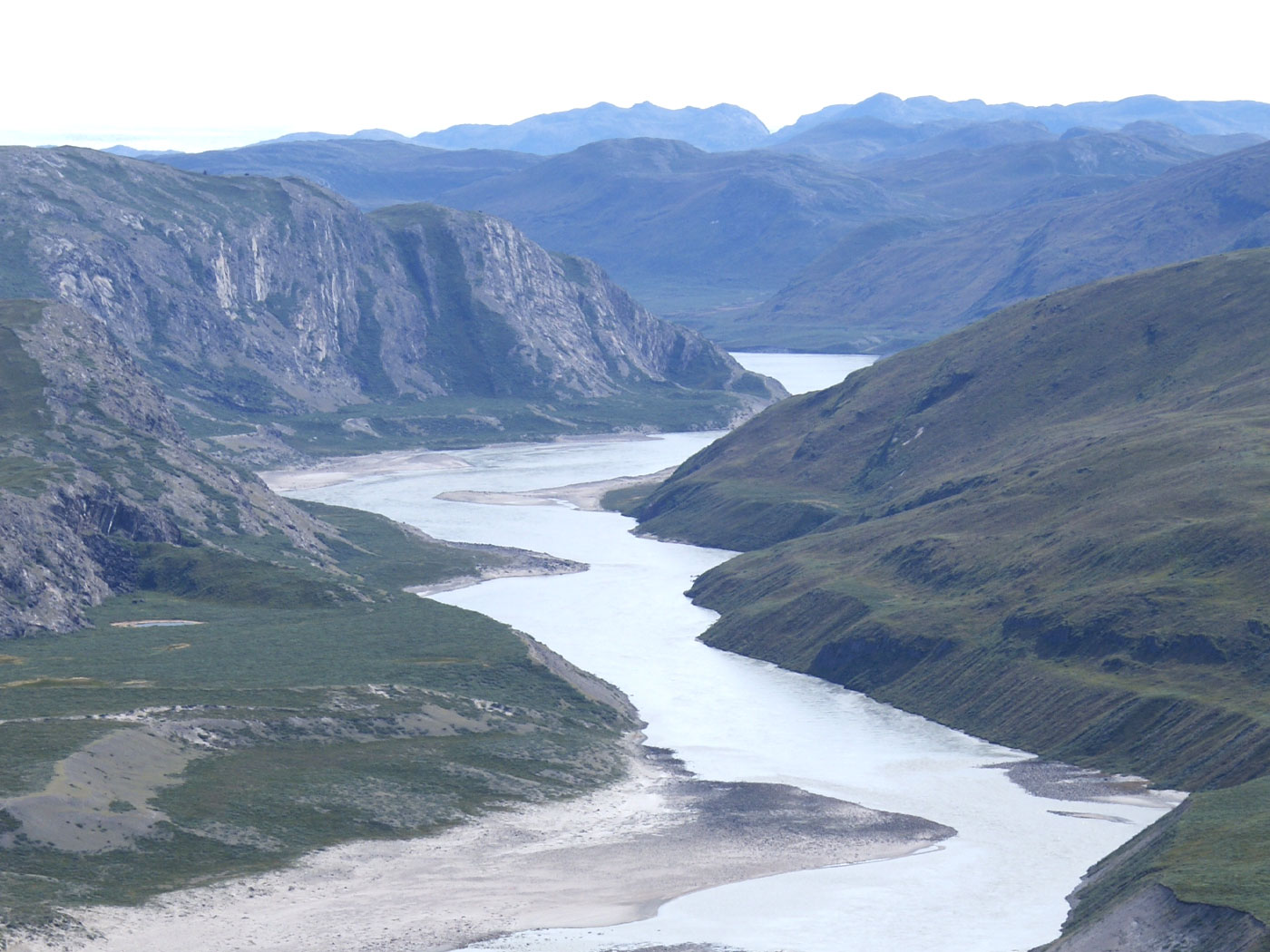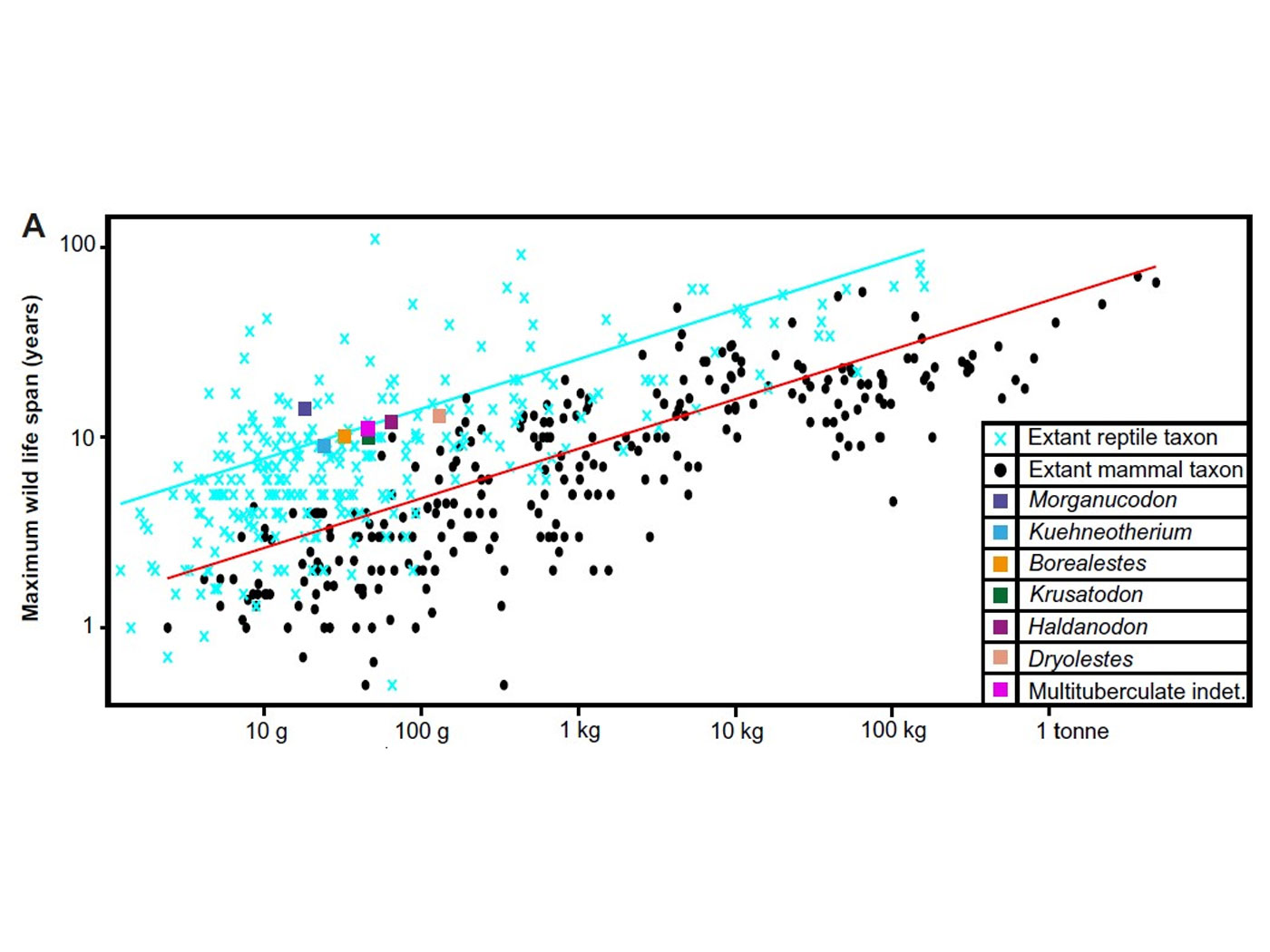Prof. Derek Ager of the University at Swansea, Wales, in Proc. Geol. Assoc. Vol. 87, p. 132 (1976) has stated
"It must be significant that nearly all the evolutionary stories I learned as a student, from Trueman's Ostrea/Gryphea to Carruther's Raphrentis delanouei, have now been 'debunked.' Similarly, my own experience of more than twenty years looking for evolutionary lineages among the Mesozoic Brachiopoda has proved them equally elusive."
This admission by Prof. Ager (no friend of creationists) fits in very well with the title of this article—a significant part of the changing scene in evolutionary circles is the changing attitude of evolutionists concerning the fossil record—more and more are now admitting that the missing links are still missing, that they have little or no evidence for gradual change in the fossil record.
In his article in Natural History 86:22 (1977) entitled "The Return of Hopeful Monsters," Stephen J. Gould, leading spokesman for evolutionists in the U.S. today, said that
"The fossil record with its abrupt transitions offers no support for gradual change…. "
"All paleontologists know that the fossil record contains precious little in the way of intermediate forms; transitions between major groups are characteristically abrupt."
From an article published in Paleobiology, Vol. 3 (1977) by S.J. Gould and Niles Eldredge we find the following on p. 147:
"At the higher level of evolutionary transition between basic morphological designs, gradualism has always been in trouble, though it remains the 'official' position of most Western evolutionists. Smooth intermediates between Baupläne are almost impossible to construct, even in thought experiments; there is certainly no evidence for them in the fossil record (curious mosaics like Archaeopteryx do not count)." In his review of Steven Stanley's book Macroevolution by D.S. Woodruff (Science 208:716 (1980)), Woodruff says (I believe he is quoting Stanley):
"But fossil species remain unchanged throughout most of their history and the record fails to contain a single example of a significant transition."
The clatter has become so loud that even the popular press has picked it up. Newsweek in an article entitled "Is Man a Subtle Accident?" published Nov. 3, 1980, stated
"The missing link between man and the apes, whose absence has comforted religious fundamentalists since the days of Darwin, is merely the most glamorous of a whole hierarchy of phantom creatures .... The more scientists have searched for the transitional forms that lie between species, the more they have been frustrated."
Some evolutionists have come to realize that the fossil record is so bad relative to evolution theory that they want to avoid it entirely as support for evolution. Mark Ridley, a British evolutionist, tells us in his article published in New Scientist 90:832 (1981) that
"No real evolutionist, whether gradualist or punctuationist, uses the fossil record as evidence in favour of the theory of evolution as opposed to special creation."
One might immediately wonder, then, where does Ridley believe we find all the marvelous evidence for the "fact of evolution?" Why, from the "observed evolution of species, from biogeography, and from the hierarchical structure of taxonomy," Ridley tells us. He apparently disagrees with his fellow evolutionist and the most distinguished of all French zoologists, Pierre Grasse´ , who states in his book Evolution of Living Organisms (English translation, Academic Press, New York, 1977, p. 4):
"Naturalists must remember that the process of evolution is revealed only through fossil forms. A knowledge of paleontology is, therefore, a prerequisite; only paleontology can provide them with the evidence of evolution and reveal its course or mechanisms. Neither the examination of present beings, nor imagination, nor theories can serve as a substitute for paleontological documents."
What Grasse´ says in his book is that biology offers us no help in our attempt to understand the mechanism of evolution. He says that evolution is a mystery about which little is, and perhaps can be, known. He says certainly mutations and natural selection cannot possibly provide that mechanism.
Many others in more recent times, in view of the growing knowledge that the fossil record produces no evidence for gradual change and that the gaps in the fossil record, particularly at the level of the higher categories, are systematic and almost always large, are now abandoning the neo-Darwinian theory of slow gradual change. Gould has said that as a general principle, neo-Darwinism is dead, although it is still textbook orthodoxy.
In his comments on a new mechanism for evolution postulated by Edward Wiley and Daniel Brooks, Roger Lewin (Science 217:1239-1240, 1982) says,
"Natural selection, a central feature of neo-Darwinism, is allowed for in Brooks and Wiley's theory, but only as a minor influence. 'It can affect survivorship' says Brooks. 'It can weed out some of the complexity and so slow down the information decay that results in speciation. It may have a stabilizing effect, but it does not promote speciation. It is not a creative force as many people have suggested."'
Let me point out first of all that all of this sounds familiar—it is the source that is astounding. The view just stated is precisely what has been said by creationists ever since Edward Blyth in 1830. Natural selection is a stabilizing force. It is not a creative force, the driving mechanism of evolution, which has been responsible for the conversion of one organism into another, all the way from amoeba to man. But now, notice who is saying this—evolutionists!
Even more, they are saying that natural selection is not only not the mechanism for evolution, it actually retards the evolutionary process. They say that natural selection slows down the information decay that results in speciation. That statement is absolutely astounding on two points.
First of all, their admission that natural selection not only is not the mechanism of evolution but actually acts contrary to evolution is most revealing. Secondly, that speciation, and thus evolution, occurs by the decay of information. Now that is really startling! We creationists have long pressed the point that the random processes supposedly at work in evolution cannot possibly account for the origin of new information required for increase in complexity and the generation of new functions and organs required by evolution. Evolutionists have, on the contrary, insisted that this was possible.
Now Wiley and Brooks are claiming that all of us were wrong, both creationists and evolutionists. Evolution, from the primordial single-celled organisms to the millions of present-day organisms, including man with his 30 trillion cells of over 200 varieties, including a three-pound human brain with twelve billion brain cells and 120 trillion connections, is the result of the decay of information!
Whatever anyone might think of that theory, certainly we can all recognize that they are rejecting Darwinism. As I have said earlier, many others are doing the same. Science Digest (Sept.-Oct. 1980, p. 55) had an article entitled "Was Darwin Wrong.?" The British Broadcasting Company produced a television program a year or two ago entitled "Did Darwin Get It Wrong?" Stephen J. Gould, Niles Eldredge, Steven Stanley and others have abandoned neo-Darwinism for what they call "punctuated equilibrium." They suggest that what we see in the fossil record is that species abruptly appear, fully-formed. They remain virtually unchanged for the duration of their existence, up to ten million years or even more, and they then abruptly disappear and are replaced by other species that also abruptly appear fully formed with no evidence of transitional forms.
They suggest that the evolutionary transitions occur somewhere out in an isolated area on the periphery of the main population and that the transitions occur very rapidly in small populations. The change is so rapid and the numbers are so small, we are told, that there are no opportunities for fossilization of the transitional forms.
Let me point out, first of all, that this notion of punctuated equilibrium is no mechanism at all. It is simply a new scenario. They are saying that since we don't find transitional forms, evolution could not have occurred slowly and gradually, so obviously, then, it must have occurred rapidly. How and why evolution occurs so rapidly, no one knows. As a matter of fact, the idea that multiplied millions of rapid bursts of evolution have occurred is contrary to the science of modern genetics. The genetic apparatus of a lizard, for example, is totally devoted to producing another lizard. The idea that by some random evolutionary process the genetic apparatus of a lizard could be rapidly reorganized to produce something really significantly different is clearly contrary to everything we know. Evolutionists simply have no mechanism for evolution.
Secondly, the notion of punctuated equilibrium doesn't solve the really serious problem evolutionists have with the fossil record. In fact, it doesn't even address that problem. The idea of punctuated equilibrium was invented to explain the lack of transitional forms between species. But that is not the real problem. The really serious problem is the absence of transitional forms between the higher categories, that is, between families, orders, classes and phyla. The total absence, for example, of transitional forms between invertebrates and the fishes, a vast gulf supposedly spanning 100 million years. We have no transitional forms between basic morphological designs, or what creationists call the created kinds.
Evolutionists find themselves in a most embarrassing position today. They can find neither the transitional forms in the fossil record that their theory demands nor can they find a mechanism to explain how the evolutionary process supposedly occurred. I am reminded of what Owl said in the Pogo comic strip. He said, "If we had some ham, we could have ham and eggs for breakfast—if we had some eggs!"
Certainly we are witnessing a changing scene in evolutionary circles today. They are finally admitting that the fossil record shows little or no evidence for gradual change (which is precisely what we must predict on the basis of creation). Many are now rejecting Darwinism and are suggesting radical new theories concerning the evolutionary process. But, almost all chorus in unison—evolution is a fact!
Isn't that amazing! One hundred and twenty-years after Darwin the missing links are still missing, and that wonderful, marvelous Darwinian mechanism that was responsible for swinging the majority of scientists over to evolution is now becoming rapidly discredited. Yet, somehow, we are told, everyone knows that evolution is a fact! Colin Patterson, senior paleontologist at the British Museum of Natural History, said in a talk he gave at the American Museum of Natural History, November 5, 1981, that he now realizes that in accepting evolution he had moved from science into faith. In a recent BBC program Dr. Patterson stated that all we really have of the evolutionary phylogenetic tree are the tips of the branches. All else—the filling in of the trunk and of the branches—is simply story telling of one kind or another.
*Dr. Duane T. Gish is Vice President of the Institute for Creation Research.













